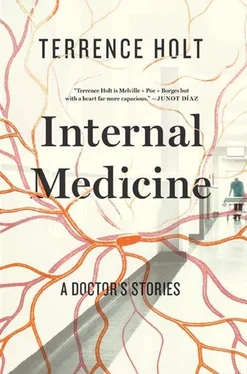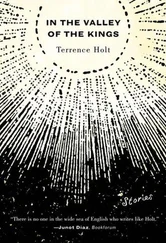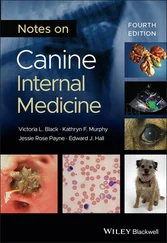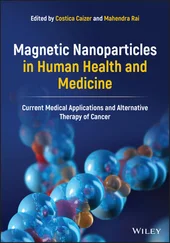Linda held out both hands, making shushing noises.
“Ladies, ladies,” she said. “I’m from”—I could see her switch gears in midsentence—“the hospital,” she announced, in tones that stressed the institutional bulk of “hospital.” “And this—” She brightened, as if in enjoyment of some inspiration. “This is the doctor from the hospital.” Her outstretched hands moved to indicate me, catching me on the steps, where I had frozen when the outcry broke out. I may actually have waved, weakly, to the faces around me.
“We’re here to see our patient,” Linda explained. “And we’re going to have to ask you”—she turned her gesture into gentle shooings—“to leave now. Our patient needs quiet. The doctor”—she turned a beneficent smile my way—“needs. to examine her. Isn’t that right Doctor? You’re going to examine her?”
The performance was working: at the invocation of hospitals and doctoring, at the specter of something as improper as a doctor’s examination, the ladies backed out of their semicircle, the flock breaking up into scattered knots and muttering. I couldn’t help wondering, even as I registered overwhelming relief, if Linda’s question to me had been more than theatrics: You’re going to examine her .
Was I? Shaking myself as if emerging from deep water, I climbed the steps and crossed the porch, past Turner (who seemed also to be awakening from a spell), into the darkened hallway.
I knew the way: down the hall, through the dining room, another hall (where pale pink cockatiels perched frozen in the limbs of steel-blue trees), into the bedroom, where light suffused through drawn shades, and a slight figure marked the otherwise blank rectangle of the bed, the head a smudge on the oblong pillow, and in the midst of the smudge a white square.
Her eyes, half obscured by the mask, were looking back at me, a long, expressionless inspection.
I looked up at the wall, anywhere but at the face on the bed. Before me hung a series of miniatures under the rubric Life Cycle of the Hyacinth Macaw : it began with a clutch of pale tan eggs and ended with a single large blue bird, the eye in the center of its golden ring peering directly out of the frame, a knowing smile on its beak.
What did it have to smile about?
“Ey ih or eh-er.”
Her voice was soft, as if some small creature perched upon my shoulder had whispered in my ear. Startled, I turned toward Mrs. Turner. She had turned, half raised herself on one elbow. She was watching me look at her paintings.
“Ey. Ih . Or eh- er.”
“ ‘They live’?”
She nodded.
“ ‘Forever’?”
I must have sounded skeptical. She shrugged. “Ong ime. Eh chur ee.”
“ A century ?”
She nodded, but her face above the mask was as blank as her own short future.
“Is it smiling?” I asked suddenly.
She nodded again.
“ Can they smile?”
Another shrug.
I crouched beside her for a moment. I realized I was looking at the mask again. As I looked, it billowed gently toward me. I drew back.
A cold hand on the back of mine caught me. I forced myself to look.
“Arh oo a rai uh ee?”
The tone was quiet, and try as I might I could find no accusation in it. But her eyes were pleading.
“Afraid of you?”
The eyelids dipped.
“No,” I said reflexively, my tone a protest.
She looked away.
“No,” I said again, much more quietly, leaning closer to her. The lie was palpable in the air between us. But how could I bring myself to say I was afraid of her? How cruel was that? In a doctor, how cowardly? She seemed about to cry again. I heard myself say, “No. I’m not afraid of you.”
The hand rose from the bed, dismissing what I’d said, and I knew in a moment it would be waving me away as well.
“I’m afraid of what’s happening to you,” I said, the words tumbling out of me. “I’m afraid of what will happen to you. I’m—”
The hand rose again, but instead of dismissing me the fingers brushed across my lips. The touch of them was electric. To this day I still feel it.
“Ohn orry a’out ee.” She swept her hand before her, embracing the room, the pictures, the house. The gesture ended in a half wave toward the window, where I could hear a car starting up, gravel crunching under tires. “Orry a’out all ’ih.”
Beyond the doorway, somewhere in the house I heard a parrot scream. And as if in answer from another direction I could hear the rising sounds of a man sobbing, sobs bursting into deep howls of grief. Her eyes cut to mine, the eyebrows rose, and her hand compelled me toward the door.
Quiet sounds followed me from the bed. Her last words were unintelligible.
In the kitchen, Turner sat slumped at the table, shoulders heaving as he sobbed. Linda, patting his back, looked up as I entered. She okay? she mouthed. I nodded. She looked at me another moment, her gaze briefly intent. You okay?
I thought before I nodded, and took a chair on the other side of Turner’s heaving form. I did not try to pat his back. But I sat there until he was done crying, and when he straightened, his face shining, and started to apologize, I heard myself make a low shushing sound.
“Don’t worry about it,” I said.
Back in the car, Linda gave me a sidelong glance.
“What?” I said, more irritably than I intended.
“Well?”
“Well what?”
“Did you examine her?”
“Yes,” I said.
“And?”
“She’s fine.”
A FEW DAYS LATER, the morning report began with the news from the on-call nurse that Mrs. Turner had died around eleven p.m. It had been peaceful. Services would be at Siloam Baptist at three on Sunday.
I sat stunned in my seat, doubly so because even as the thought of her death refused to make sense, I was puzzled to find myself so affected. Hospice , I said to myself. People die. Had I learned nothing?
I shook my head involuntarily. Linda, at my side, was looking at me.
You okay? she mouthed.
I thought about this again, before I shrugged. She nodded and turned back to the meeting.
As the meeting broke up and Linda shouldered her pack, she said to me over her shoulder, “You going?”
I thought about the Turners, and myself, and hospice one last time.
“Of course,” I said.
THE AFTERNOON WAS HOT for the time of year, the sun harsh on the raw red clay, the green shade under the awning inadequate for the gathering at the graveside. I tried to recognize the church ladies who had been in Turner’s dooryard the week before, but in the crowd the dresses and hats and hairnets and dour expressions were impossible to distinguish. I held back as the preacher read his text, not really following, letting the murmur of the eulogy, the Jesus and the sins, the clay and the dust, the resurrection and the hope eternal all fade into the larger stillness of the late Spring afternoon.
White stones shimmered in the heat. A bluebird perched atop one, distinct amid the shimmering. At intervals it dropped to the ground, returning with something clutched in its beak. Beyond the churchyard, massed loblollies and poplars kept their shade to themselves. In the distance, a wren was scolding; a crow barked as a smaller bird harried it over the treetops; high overhead a trio of turkey buzzards teetered on the air. As I looked and listened, the stillness of the day came gradually alive with birds. They were everywhere.
I found them wherever I looked — a thrasher rustling dead leaves under azaleas; a mockingbird flipping its tail from the low branches of a dogwood; sparrows hopping in the dust — and told myself that Mrs. Turner’s fascination with birds had been a testimony to something in her I had never had a chance to see, an appreciation for the life around her. The idea was comforting; it was probably not much different from whatever the preacher was saying.
Читать дальше












